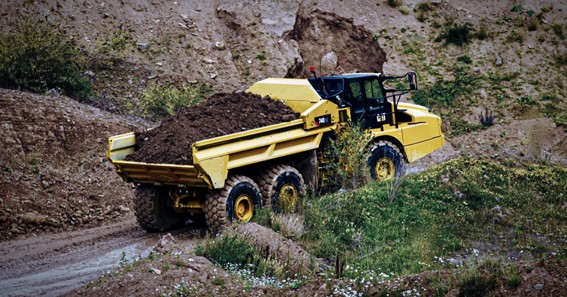Dump trucks play a vital role in the construction industry, serving as a powerhouse of efficiency on job sites. These robust vehicles are designed to transport large quantities of materials quickly and safely, making them an indispensable asset for any construction project. From earthmoving to debris removal, dump trucks streamline operations, increasing productivity and enhancing overall efficiency.
In this blog post, you can explore how dump trucks like the Komatsu 785 dump truck boost efficiency on construction sites.
Swift and Timely Material Transportation
One of the primary advantages of using robust and reliable machines, like the Komatsu 785 dump truck, is their ability to swiftly transport materials from one location to another. Whether it’s aggregates, soil, gravel, or other construction materials, these trucks can carry large volumes, significantly reducing the number of trips required. By minimising transportation time, construction crews can maintain a steady workflow, ultimately speeding up project completion. With advanced features such as a powerful engine and enhanced suspension, these trucks ensure smooth operation even in challenging terrains, further enhancing efficiency on construction sites.
Efficient Loading and Unloading
Dump trucks are specifically designed for efficient loading and unloading of materials. Equipped with hydraulic systems and rear beds that can be raised and lowered, these trucks enable quick and precise dumping of contents. Construction workers can load materials directly into the bed using loaders or excavators, reducing the need for manual handling. Once at the destination, the rear bed can be elevated, allowing the materials to be easily deposited in the desired location. This streamlined process eliminates unnecessary delays and ensures efficient material distribution across the construction site.
Versatility in Construction Operations
Dump trucks offer versatility in construction operations, accommodating various tasks. From hauling materials for road construction to transporting debris from demolition sites, these vehicles can adapt to various project requirements. Their multi-purpose nature enables contractors to optimise their resources and minimise the need for separate specialised equipment. By consolidating tasks into a single vehicle, dump trucks contribute to efficiently allocating resources, reducing costs and enhancing productivity.
Waste Management and Debris Removal
Construction sites generate a significant amount of waste and debris that need to be managed effectively. Dump trucks excel in waste removal, facilitating efficient debris disposal. Equipped with large-capacity beds, these trucks can transport substantial waste and have sharps bin collection to designated disposal areas, reducing clutter and maintaining a clean work environment. By promptly removing debris, dump trucks enhance safety, prevent potential hazards, and allow construction crews to focus on core activities.
Improved Safety and Reduced Workforce Fatigue
Dump trucks also contribute to increased safety and reduced workforce fatigue on construction sites. By minimising manual labour involved in material transportation, these vehicles mitigate the risk of on-site injuries and accidents. Workers are spared the physical strain of carrying heavy loads, allowing them to concentrate on other essential tasks. The streamlined loading and unloading process further minimises the potential for worker fatigue, enabling employees to maintain their efficiency throughout the workday.
Click here – Designer Childrenswear Ideas for Special Occasions
Wrapping up
Dump trucks are an indispensable asset in the construction industry, boosting efficiency in numerous ways. From swift material transportation to efficient loading and unloading, these versatile vehicles enhance productivity on construction sites. Moreover, they contribute to waste management, improve safety, and reduce workforce fatigue. As construction projects evolve, dump trucks remain a cornerstone of efficiency, helping construction crews meet deadlines, optimise resources, and achieve successful project outcomes.
